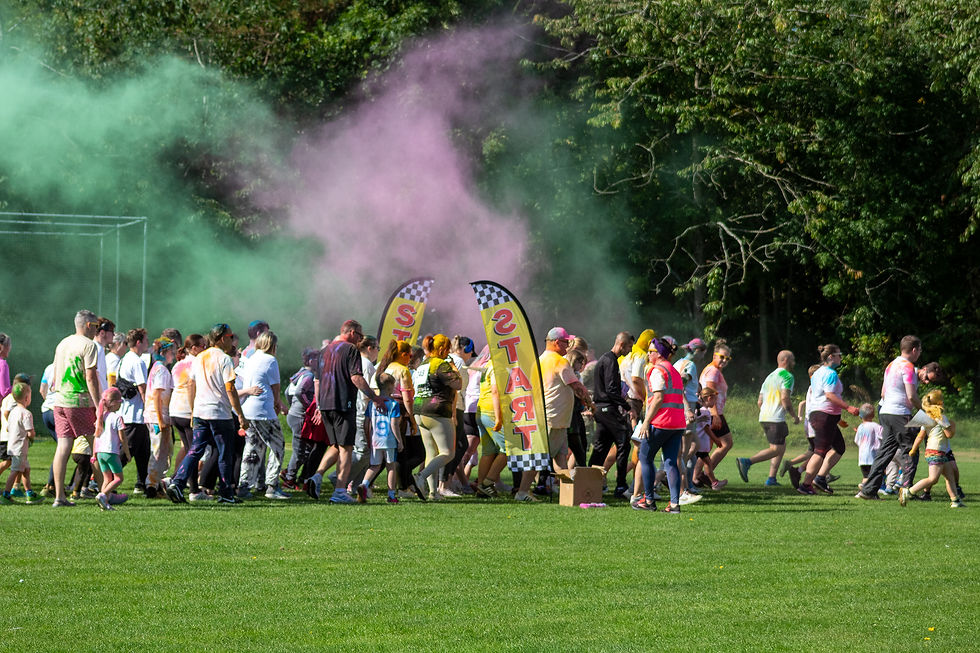#MHAW Being in nature
- Muirhead Outreach Project
- May 14, 2024
- 2 min read
This Mental Health Awareness Week, our family support worker, Ainsley, talks about being in nature.

Ainsley likes to spend time outdoors as it clears her head and helps her improve her mental health.
Research shows that nature has many benefits for our well-being.
Some of the benefits of nature are:
It reduces anger, fear, and stress and increases pleasant feelings.
It improves attention, mood, memory, and emotional regulation.
It lowers blood pressure, heart rate, muscle tension, and the production of stress hormones.
It reduces the risk of psychiatric disorders and enhances empathy and cooperation.
Nature exposure is associated with better cognitive function — like memory, attention, creativity and sleep quality.
Can support the management of PTSD, depression and other mental health issues.

Being in nature is usually free and Fife and Scotland have a wealth of beautiful scenery that can help lift your mood. Some ways you can try and incorporate nature into your day (from Mind) are:
Bring nature indoors
Buy flowers or potted plants for your home.
Collect natural materials. For example, leaves, flowers, feathers, tree bark or seeds. Use them to decorate your living space or in art projects.
Arrange a comfortable space to sit. For example, by a window where you can look out over a view of trees or sky.
Grow plants or flowers on windowsills. See the Royal Horticultural Society website for tips on planting seeds indoors.
Take photos of your favourite places in nature. Use them as backgrounds on a mobile phone or computer screen. Or print them and put them up on your walls.
Listen to natural sounds. You could use recordings or apps that play birdsong, ocean waves or rainfall.
Watch videos of nature. You could try virtual walks or livestreams of wildlife.

Do activities outside
Take a walk in green space. For example, a local park.
Get creative. Draw or paint animals or nature scenes, or let them inspire a poem or song lyrics. If you enjoy writing in a journal, try doing this outside.
Eat meals outdoors. Have a picnic in a local park, or sit in a garden if you have one. This might be something you could enjoy doing with other people.
Watch the stars. Use a stargazing website, app or book to help you recognise different stars, or simply enjoy looking at the night sky. Give your eyes time to adjust, as it can take about 20 minutes before you can fully see stars in the dark.
Exercise outside. Run or jog through a local park, or do yoga outdoors. You could try it by yourself, or look for classes in your local area.
Join a local walking or rambling group. There are lots of different organised walking groups. For example, 'Bums Off Seats'
Follow a woodland trail. See the Forestry Commission Scotland website to look for woodland near you.
Go beachcombing. Visit the seaside and search the shoreline for interesting things.
Try geocaching. Geocaching involves looking for items in hidden outdoor locations, using a mobile phone or tablet. For more information on geocaching see the Wilderness Scotland website.




_jfif.jpg)










Comments